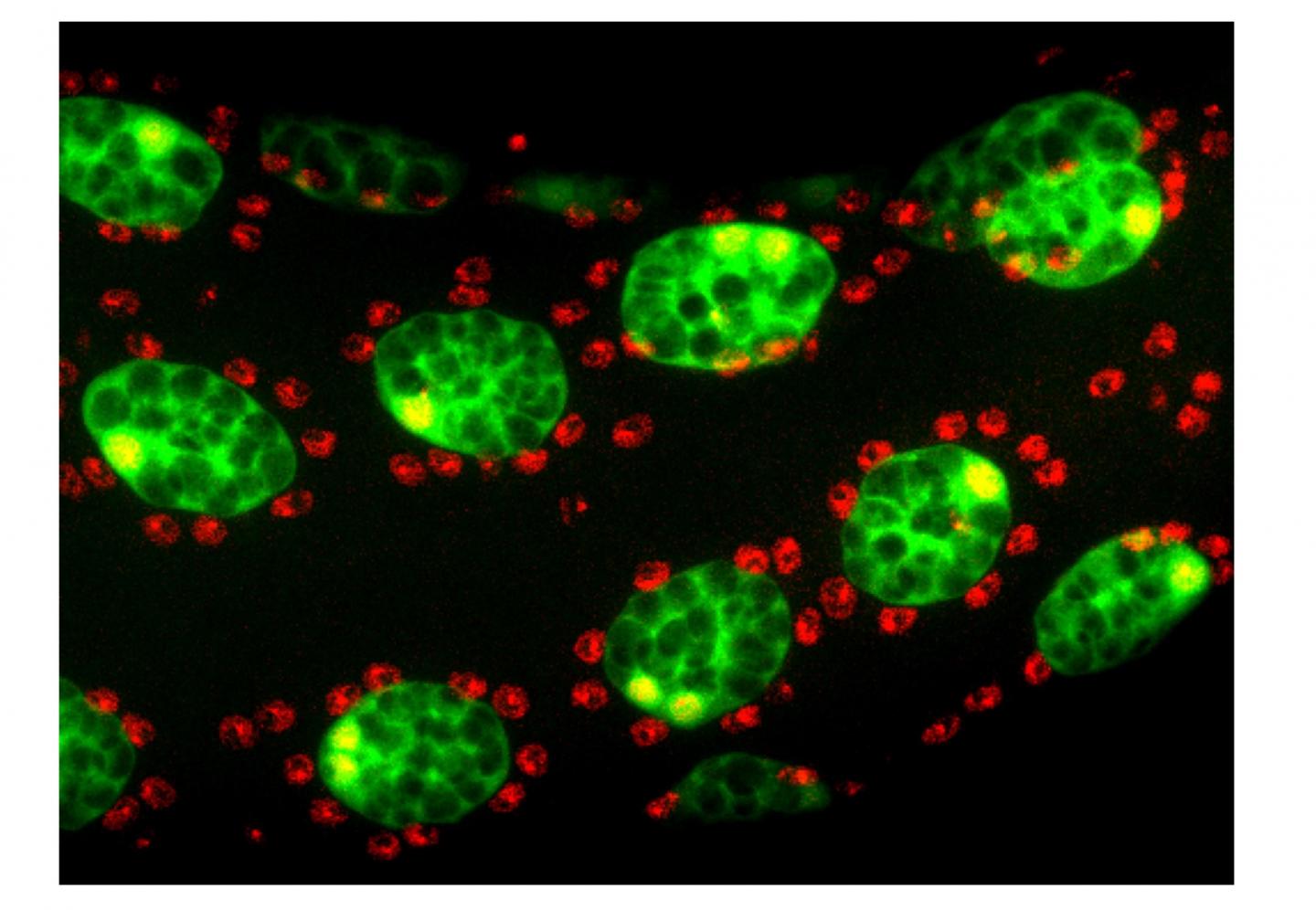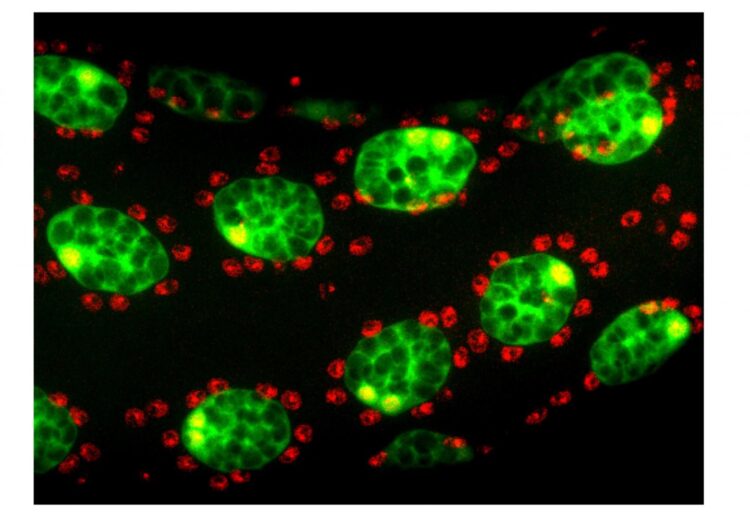Researchers from UNIGE have discovered a very small protein in Drosophila that plays a key role in how females select the semen that will fertilize its eggs when it mates with several males

Credit: © Robert Maeda
Even a well-characterized genome, such as that of the Drosophila the so-called fruit fly, still holds surprises. A team from the University of Geneva (UNIGE), Switzerland, in collaboration with Cornell University (USA) and the University of Groningen (Netherlands), has discovered an RNA coding for a micro-peptide – a very small protein – that plays a crucial role in the competition between spermatozoa from different males with which the female mates. In addition to shedding new light on this biological mechanism, this work, to be read in the journal Proceedings of the National Academy of Sciences (PNAS), highlights the importance of small peptides, a class of proteins that is now emerging as a key player in complex biological processes.
In many species, including insects, mating induces physiological changes in the female aimed at the reproductive success of the couple. This response is induced by substances in the male’s seminal fluid that interact with the female’s reproductive system. These post-coital changes include increased ovulation and egg laying, semen storage and release, dietary changes and gut growth. A mated female also becomes less receptive to other males and can use the semen stored in her spermatheca from her first intercourse for many days. However, this behavior is counterbalanced by the “last male preference” phenomenon. Indeed, despite the decrease in libido normally induced by a first mating, females sometimes decide to mate with a new, healthier or stronger male, probably in order to have more robust offspring. In this case, the semen of the first male is expelled and only that of the last male is kept.
A small peptide with a big role in sperm selection
The authors of this study have studied this phenomenon in Drosophila, the small fly that lingers around overripe or rotting fruit. This model organism, very popular with researchers for genetic and developmental studies, allows for easy observation and study of reproductive behavior. The biologists analyzed the proteins produced by the accessory functional gland, homolog of the human prostate. “Among the proteins we identified as essential for a normal response after mating is a micro-peptide, a very small protein that had never been studied before, as the RNA that codes for it was considered ‘non-coding'”, says Clément Immarigeon, first author of this study conducted in the Department of Genetics and Evolution of the Faculty of Science at UNIGE.
In order to verify if this peptide finally played a determining role, the researchers created mutants that no longer possess it. In females first mated by a mutant male, the phenomenon of “last male preference” is no longer observed. Indeed, if they are then mated by another male, they lay eggs fertilized by the sperm of both males, and not exclusively by the last progenitor, which could reduce the robustness of their offspring. “To our surprise, we found that this micro-peptide – encoded by a putative non-coding transcript – performs important reproductive functions. Such micro-peptides were not previously recognized but are emerging as important players in complex biological processes”, summarizes Robert Maeda, researcher in the Department of Genetics and Evolution at UNIGE and last author of the study.
Towards the sterile insect
The study of these mating-induced phenomena is of particular interest in certain insect species responsible for sanitary, economic or environmental problems. A biological alternative to non-selective insecticides is the “sterile insect” method, which limits harmful populations by releasing millions of sterilized males into the wild to prevent females from mating with fertile wild males. A better understanding of the post-mating response will allow the development of even more effective biological control methods.
###
Media Contact
Robert Maeda
[email protected]
Original Source
https:/
Related Journal Article
http://dx.





